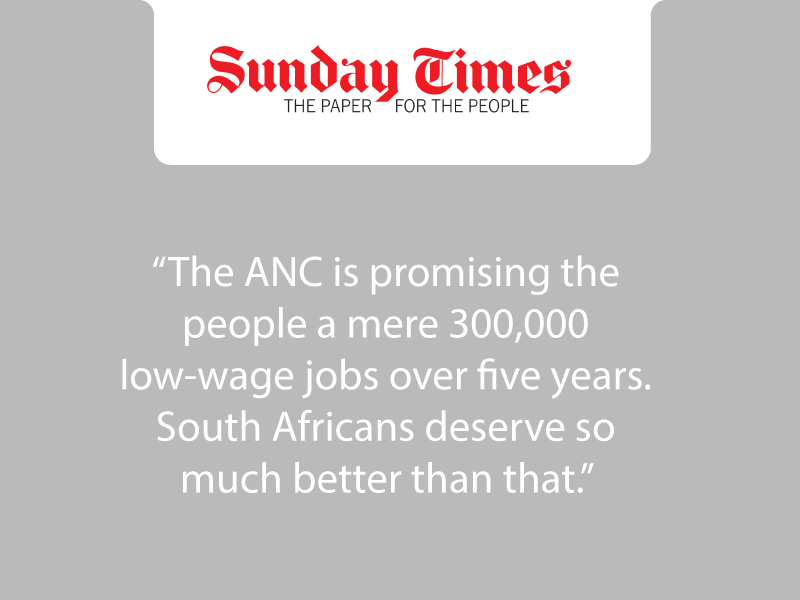
In a recent centre for Development and Enterprise (CDE) workshop on international experience of schooling reform, two different experiments in schooling reform were presented which offer interesting ideas for South Africa. Both involve public-private partnerships.
The examples from Chile and Boston, US suggest that the government does not have to go it alone to improve learner achievement, but can draw on resources and approaches from the private sector to a make a real difference in struggling public schools.
The government has to create the right environment for public-private partnerships to flourish.
For several decades Chile adopted reforms that had shown good results in other parts of the world, yet student performance did not improve.
It eventually developed a strategy for improving low-performing schools that relies on public-private partnerships.
The private sector contributes significantly to the quality of education, supporting schools to improve learning achievement. Levels of co-operation between the education ministry and the private sector are unusually high.
The partnership was made possible when increased per capita subsidies were legislated for priority (poorer) students and vulnerable schools.
This followed protests in 2006 when secondary school students took to the streets to demand better education.
Individual targets are set and non-performing schools now face the threat of being closed, principals and teachers removed, or having an external supervisor appointed. Government subsidies can be cancelled or fines levied for non-compliance. This has encouraged schools to seek out support from private sector organisations in order to achieve their performance targets.
One of these organisations is Fundacion Chile, a privately funded initiative which comes in to assist schools when asked by the local officials. A four-year improvement programme is negotiated with each school, teachers, the local officials and the Fundacion. Schools and teachers have an interest in making full use of this external support because of the penalties that will be imposed if the school does not show annual improvement in results.
The city of Boston in the US is another example of a successful public private partnership in education.
Unlike South Africa, schooling in the US is often a city responsibility. This gives room for considerable innovation by reform-minded city officials.
Improvements in the schooling system started in Boston with the appointment of a new school superintendent in 1996.
He established a general framework for reform which seeks to replicate in all schools the six essential things that “good schools” do: organise activities around instruction; obtain and regularly use detailed data about student performance; offer professional development for teachers that is embedded in their daily work; build leaders; use resources effectively; and reach out to parents and the community. The privately funded Boston Plan for Excellence (BPE) has partnered with the city to help it implement this programme.
The BPE has developed the “Effective Practice Network of Schools”, where school leaders share and test ideas and spread good practice. The programme has also managed to raise funds to test approaches that are relatively unproven and take them to scale, particularly with regard to teachers.
It was found that traditional models of teacher development operated on a voluntary basis. This limited the number of participants and did not draw in teachers in real need. The new model identified teams of teachers working together in schools at risk.
The team approach encouraged shared learning and performance assessment, placing value on existing expertise.
As a result, more people have been turned into good teachers.
BPE argues that it is important to provide the right opportunities and support for teachers, especially during their first three years of teaching.
In a controversial move, the superintendent adopted an entirely new system for teacher training to replace traditional university courses which he judged inadequate (Harvard was outraged!).
In partnership with BPE, the Boston Teacher Residency (BTR) programme was created. The BTR involves course work and apprenticeships with very good teachers for all trainees before they are certified. The BPE teaches the courses which are designed to cover the eight competencies it believes all teachers should have; these have far more to do with the realities of teaching in inner city schools than educational theory as taught at university. Weak, underperforming teachers currently in the system or those who have no interest in teaching are encouraged to leave.
The success of the Boston programme has been possible due to the stability arising from the superintendent’s long tenure in office (13 years) and the fact that the city has chosen to focus on long-term systematic and structural improvements rather than small reform projects.
These two examples of schooling reform and support for implementation of reform show the value of true partnership between public officials and privately funded institutions set up to support reforms they believe in.
Ann Bernstein is the executive director of the Centre for Development and Enterprise. This article is based on the following report, International best practice in schooling reform: what can SA learn from other countries?




